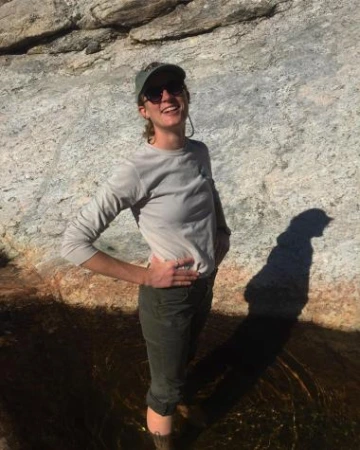
What was the most rewarding part of the internship?
I really enjoyed working with a 3rd grade class that was all refugee students. These students were unafraid to ask questions, and were enthusiastic about the material they were learning. I loved getting to interact with them because sometimes the kids who are the most excited are the least expected.
What was the most challenging part of the internship?
I think that the hardest part was getting the curriculum we were teaching to connect with students from week to week. Writing lesson plans that connected different topics cohesively throughout the semester proved to be difficult at times. Being placed in both kindergarten and third grade classrooms, I found that sometimes we would spend more time on vocabulary than the activity, and I wish we had the chance to get through everything that we planned for them.
Since finishing the BDP internship, have you completed any additional internships, volunteer, or job opportunities?
I was lucky enough to meet many people during the Bio/Diversity Project that I now work with at Saguaro National Park - namely, Steve Bolyard and Don Swann. I started as a Next Generation Ranger with the park and now I am in a hybrid position between law enforcement and resources as the Manning Camp Assistant Ranger. This position includes working 8 days on, and 6 days off up at Manning, making sure that everyone is safe and enjoying their time in the Rincon Mountains. I also assist the Natural Resources team when they come up to the Rincons in their biological monitoring surveying. I really enjoy being able to work outdoors all day and I love the remote aspect of the job.
What does it mean to be an alumni of the Bio/Diversity Project? In what ways has this internship shaped you?
The Bio/Diversity Project is a great opportunity to have, even if you don’t want to go into education. I always knew that education wasn't for me, but I was able to learn how to present scientific information to diverse audiences. It is nice to have skills from the internship in my back pocket, especially when it comes to communicating scientific information to the public.
Do you see yourself using the skills that you gained in the Bio/Diversity Project in your current position?
One of the skills I gained in through the Bio/Diversity Project was the ability to present scientific information to the general public. During the internship, we had to present on an assigned subtopic of biodiversity within the Sonoran Desert through an auto-advancing PowerPoint presentation of 15 slides in 5 minutes. It was really challenging at the time and I had to practice so much to get the timing right, but it was worth it! Learning to express an idea simply is a critical skill that I use often, such as talking about certain strange formations of saguaros and why they happen in nature. This is especially useful when communicating with hikers, specifically non-native speakers.
While The Bio/Diversity Project is an environmental science outreach program, it also aims to foster diversity and inclusion in the environmental workforce. Since being part of the program, have you had the opportunity to continue working to foster diversity and inclusivity in any way? If so, please tell us how.
Yes, working at Saguaro National Park offers many opportunities to interact with volunteer and school groups. I really enjoyed working with high school conservation clubs with a very diverse background of students that may not normally have made the trip out to the park.
What would you say to someone who is considering participating in the Bio/Diversity Project?
Definitely do it! Even if you think that it’s not relevant to you or your background, it is a great intersection of science and communication that boils down to an overall great experience. Even though it may be a lot of work, it is a great experience.
What’s next for you?
I am currently looking into grad school options in Australia. I am interested in either pure hard science, such as Ecology or Environmental Science, or Environmental Health and Public Health.

